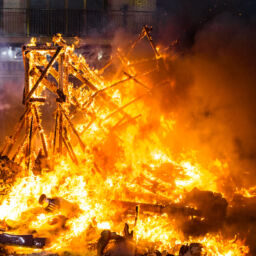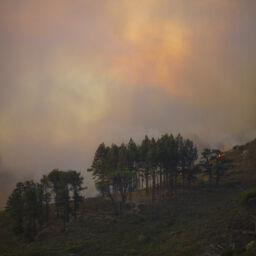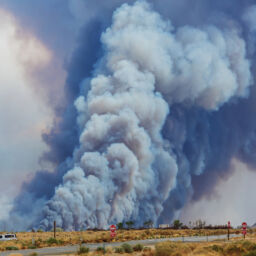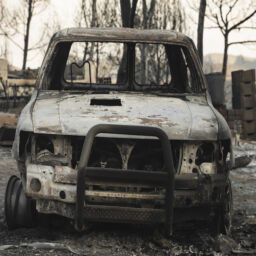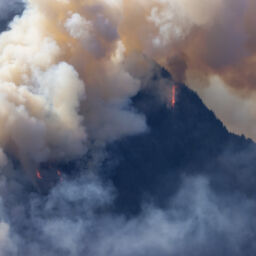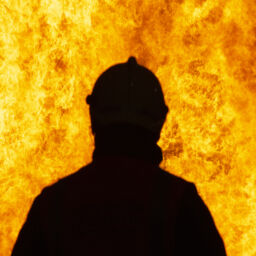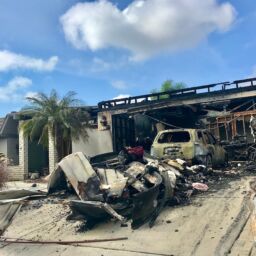LAHAINA, Hawaii — The scale of the physical damage in the historic center of Lahaina is clear in its apocalyptic landscape of rubble, ash and debris.
But the scale of the inner damage can be seen in the 5-year-old girl that Maui’s chief mental health administrator John Oliver saw the other day. The girl came with her mother into the Lahaina community health clinic, next to the main burn zone, clutching a green and purple plushy stuffed animal. She seemed withdrawn and afraid.
“I got down to her level and I asked her name and how she was doing, asked about her stuffed animal. And she just offered up that ‘I’m sad.’ And I said ‘I’m so sorry, why are you sad?’ And she said ‘I’m sad because I saw a lot of dead bodies.'”
Oliver told the girl how very sorry he was, and tried to reassure her saying ‘I want you to know that you’re safe now.’
“She smiled and we continued to play for a little bit and she said ‘you know I really miss my friend.’
I said, ‘I’m sorry to hear that’ and we talked a little more.”
Soon the psychiatrist came in and the mom told Oliver that when her daughter says she misses her friend, it’s her best friend. And she died in the wildfire.
Counselors here describe these early days of disaster mental health treatment as a kind of triage, psychological first aid for anguish that runs the spectrum of symptoms from deep sadness and sleeplessness to exhaustion, even breakdowns.
Survivors are still dealing with physical challenges like where they’ll be living in the coming weeks and months. But size of the emotional and psychological toll here is coming into sharper focus as the need for mental health support is growing. Mental health administrator Oliver calls it “the worst mental health disaster in our state’s modern history.”
“There’s a heaviness in the air that is — we’re destroyed,” social worker Scott says.
“We’re not going to have all the answers right now.” She paused her private practice to help counsel the displaced at a community center in South Maui that’s been turned into a temporary shelter. “We’re coping.”
Evacuees at the south Maui shelter where Scott is working this week were offered the chance to move from shelter cots to much nicer accommodations in hotel rooms or Airbnb apartments. But several people did not want to go, Scott says, including an older man who felt safer in the shelter. Both of his hands were fully bandaged from serious burns. Scott went over and sat with him.
“I called him by his name and I said ‘listen let’s see about what we need to do to make sure you feel safe enough to get on that bus'” to a better temporary home.
Sometimes it’s the little things: he wanted his lost flip flops. Scott found them near the bathrooms. And it helped.
“It took some work but I did get him on that bus. And he was thankful to have his bags and he sure was thankful to have his flip flops. He needed his slippers, that was his need.”
Compounding the grief here, hundreds are still listed as unaccounted for. In addition, people can’t identify their lost loved ones. Only a few remains have been ID-ed so far. And some may never be found.
“If you break it down to one word we are trying to give people hope,” says 17-year veteran American Red Cross disaster mental health manager Stu Coulson. “Right now it’s all about active listening, empathy and trying to connect people with services.”
State and federal officials are trying to mobilize a fresh influx of mental health clinicians to help the some 65 clinicians already on the ground here, Maui behavioral health administrator Oliver says. To make that easier, Hawaii’s governor issued an emergency order temporarily waiving the state-licensing requirement for counseling.
But the need, and the hurt, are enormous. And getting care, and in some cases psychiatric medication, to the displaced scattered across the island is a mammoth task. Scott and other counselors here say in these early days of acute stress it’s not about intensive therapy, it’s more about listening and offering practical tools for comfort and care.
“Whether that is breathing, whether that is progressive muscle relaxation, whether that is mindfulness and meditative practices, just sitting, stretching, or talking story, making jokes,” she says.
[…]
But who counsels the counselors who’ve had to flee a deadly wildfire and lost their home? Vance admits both she and Rio are weary. Vance and these other mental health professionals underscore that the fire survivors will be reckoning with their wounds for a very long time.
After she recently went to buy some much-needed clothes, she says Rio gave her a forlorn look.
“I ran out of the house with the dress I had on and one other and Rio got back into the car and he gave me this look like ‘mom I just want to go home. Are we going to go home now?’ And I just looked at him and cried and I said, ‘Rio honey, I want to go home too, but we don’t have a home anymore. But we’ll make the best of what we’ve got.'”
And she told Rio: ‘we’ll help each other get through this.’
Full story: NPR, August 21, 2023


